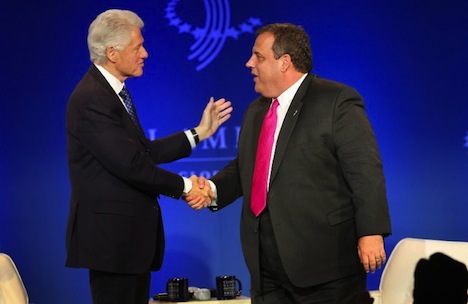
Don’t look now, but House speaker Paul Ryan may have just one week to salvage his career.![]()
OK, that might be hyperbole, but the longtime Wisconsin representative is facing perhaps the stiffest challenge of his nearly two-decade career in elective office.
For the better part of a decade, Ryan has been the face of movement conservatism in the United States. From the beginning of the Obama administration, Ryan quickly filled a role as something of the dean of conservative policymaking on Capitol Hill, earning for himself a reputation as a radical intellectual of the American right, who would routinely propose budgets that would so drastically reshape taxes and spending in the United States, even his predecessor as House speaker, Newt Gingrich — no shrinking violet on the American right — dismissed some of his ideas as ‘right-wing social engineering.’
Nevertheless, Ryan’s ascent in American politics is stunning. He served as Mitt Romney’s running mate in 2012; had the Romney-Ryan ticket won that election, Ryan would have played an important role in formulating economic policy for the Romney administration. Reluctantly — very reluctantly — Ryan agreed to run for House speaker last year after John Boehner stepped down and the frontrunner, House majority leader Kevin McCarthy, suddenly dropped out.
In many ways, Ryan’s has been a fairy-tale rise in American politics and, even today, he is a plausible future president in 2020 or beyond.
* * * * *
RELATED: A brief history of Republican speakercide
* * * * *
That may be changing, however, in the age of Trump.
By all appearances, Ryan was already facing an uncomfortably tough primary challenge from local businessman Paul Nehlen. But that challenge became a bit tougher on Sunday evening, when Republican presidential nominee nudged supporters toward Nehlen via Twitter:
Thanks to @pnehlen for your kind words, very much appreciated.
— Donald J. Trump (@realDonaldTrump) August 1, 2016
On Monday, Trump refused to endorse Ryan in his primary, openly mocking the House speaker with the same kind of equivocating language that Ryan used in May when he refused to endorse Trump for the presidency:
Trump praised the House speaker’s underdog opponent, Paul Nehlen, for running “a very good campaign.” Trump said that Ryan has sought his endorsement, but that as of now he is only “giving it very serious consideration.”
“I like Paul, but these are horrible times for our country,” Trump said. “We need very strong leadership. We need very, very strong leadership. And I’m just not quite there yet. I’m not quite there yet.” Trump’s refusal to back Ryan represents an extraordinary breach of political decorum and signals that the Republican Party remains divided two weeks after a national convention in Cleveland staged to showcase party unity.
Continue reading Trump boosts Nehlen in August 9 primary vs Paul Ryan

